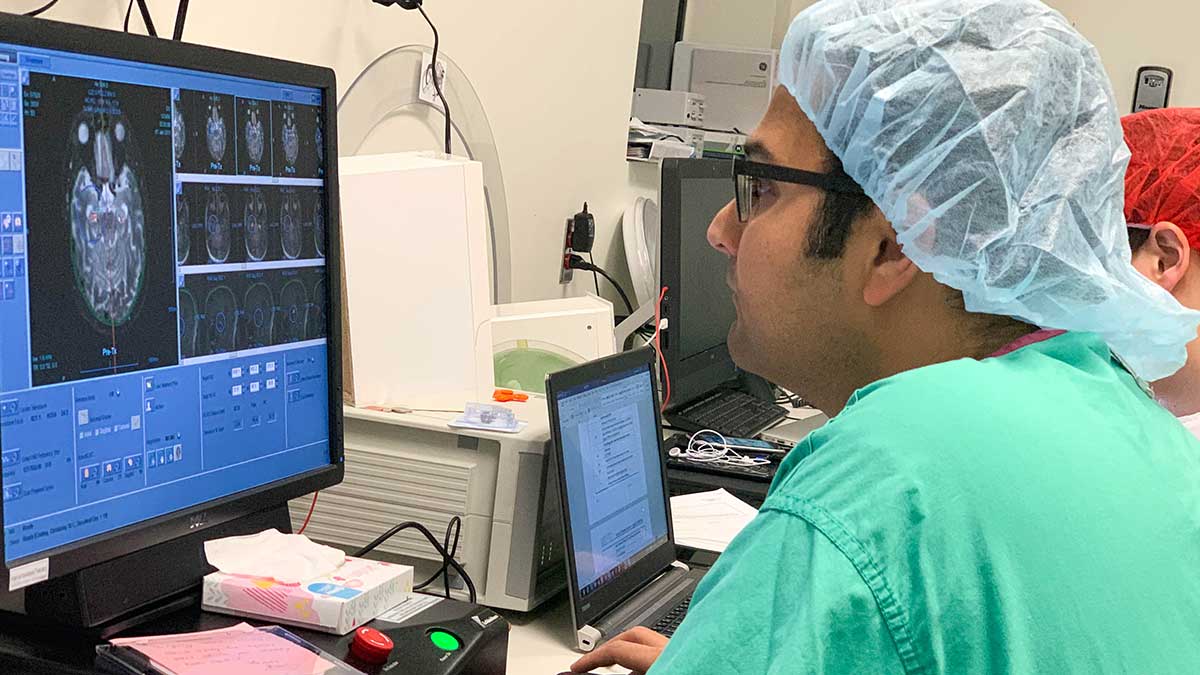How to help when seniors struggle with technology

With so many older adults relying on smart phones, computers and tablets in their daily lives, at some point using this technology could become a struggle. They may no longer remember how to use their cellphone, or forget passwords and how to login to their online accounts.
If you see this happening to loved ones—such as parents or grandparents—you may wonder if you should take away their troublesome technology, much like you’d take away car keys from elderly drivers who are no longer safe on the roads.
Could these struggles be early signs of dementia or other cognitive issues?
Yes. During every visit in our Cognitive and Memory Disorders clinic at the Ohio State Wexner Medical Center, we’ll explore this with the patient. We want to assess their ability to use technology via computer, tablet, cell phone, TV remote and appliances.
Often our patients tell us that when they struggle to use their cellphones or computers, they just do less and less of it. They lose confidence, and so stop using the technology.
This can become more of a challenge for their caregivers, who must do even more for their loved one, such as dialing their phone, looking up information on the internet and even changing TV channels.
Do patients with dementia have a greater chance of being scammed via technology?
For most patients who develop Alzheimer's, Lewy body or vascular dementia, they aren’t so much at risk of being scammed over technology since they can’t figure out the technology and lose confidence in using it.
Also, they likely don't know where they put their account numbers or credit card numbers, and how to fill out the forms correctly online. So they just stop using technology unless it’s supervised.
However, they’re more prone to being scammed by telephone.
Patients with frontotemporal dementia who are still able to understand technology, are disinhibited and have very poor judgement are at the greatest risk of falling prey to scammers.
What are some techniques to help?
- Simplify their technology. For example, buy a landline phone that can be pre-programmed to call family or friends with the press of one button, instead of having to remember each phone number. Some of these phone also have larger numbers which are easier for seniors to use.
- Take over tasks that require them to use the internet. For example, you can pay their bills for them if it’s too confusing for them to do it online. This will reduce frustration. They can still be engaged by making a list for their caregiver as to what they need to have done, instead of doing it online themselves. Or try doing the task together.
- Change their email address. This way businesses and other email contacts you don’t want them to see are no longer soliciting them.
- Limit access to their funds. If legal and allowable, place limits or block their access to sending or taking out money. Drop credit cards, or make them debit cards with limits.
- Help them with their passwords. If passwords are needed and not dangerous for others to get, make a list for them and place it somewhere they can remember to find it.
How can the SAGE Test help?
The Self-Administered Gerocognitive Exam (SAGE) Test is designed to detect early signs of cognitive, memory or thinking impairments. Developed by my team of researchers at Ohio State, it evaluates your thinking abilities and helps physicians to know how well your brain is working.
It’s a simple, free online test that you can take if you’re concerned you might have cognitive issues. Or you may wish to have your family or friends take the test if they’re having memory or thinking problems. While dementia or Alzheimer's disease can cause these cognitive problems, there are many other treatable disorders that also may cause them.
The SAGE Test doesn’t diagnose any specific condition, but the results can help your doctor know if further evaluation is necessary.
Douglas Scharre is director of the Division of Cognitive Neurology, Neurobehavior and Memory Disorders Clinics at The Ohio State University Wexner Medical Center’s Neurological Institute. He’s also a professor in The Ohio State University College of Medicine.




